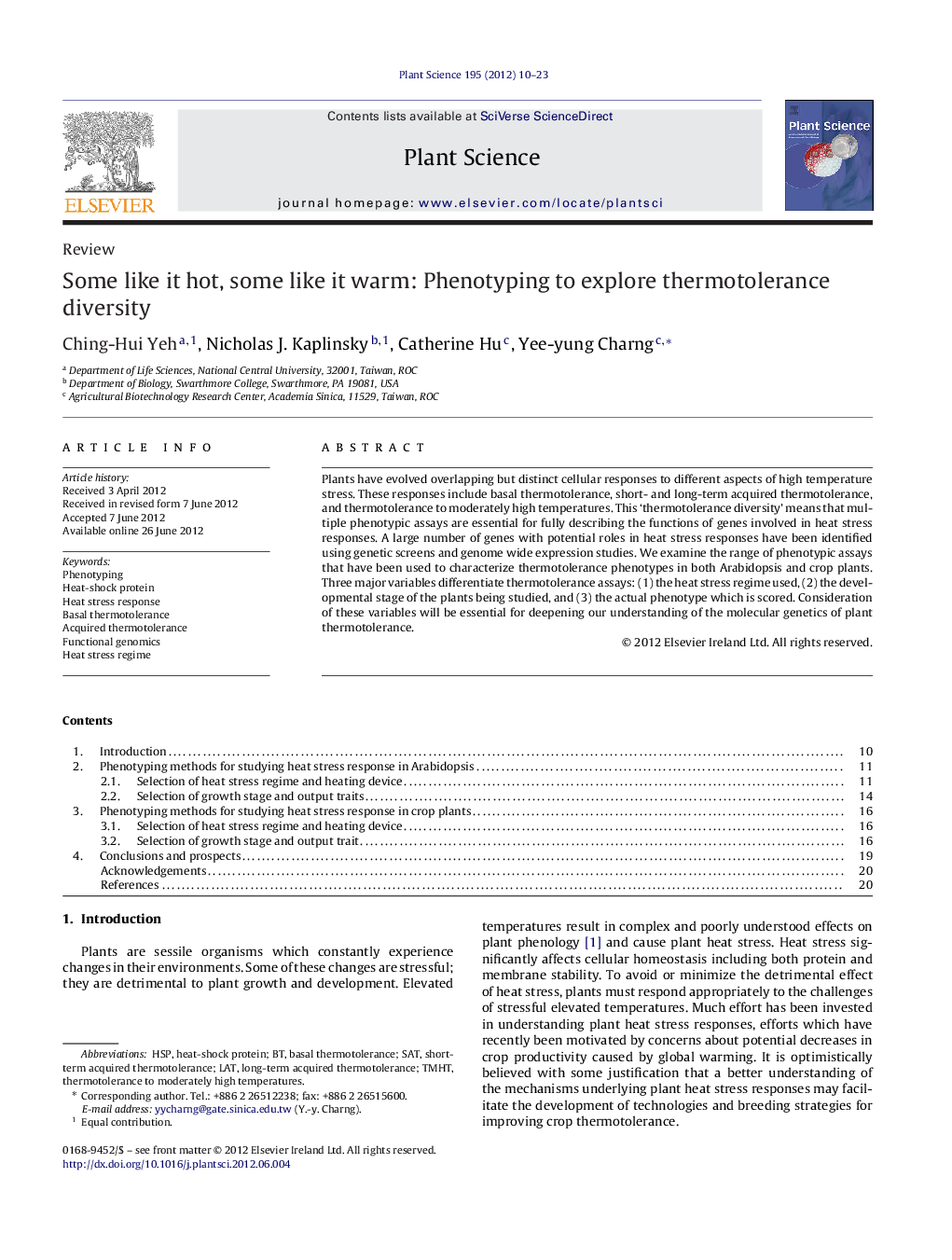| Article ID | Journal | Published Year | Pages | File Type |
|---|---|---|---|---|
| 2017343 | Plant Science | 2012 | 14 Pages |
Plants have evolved overlapping but distinct cellular responses to different aspects of high temperature stress. These responses include basal thermotolerance, short- and long-term acquired thermotolerance, and thermotolerance to moderately high temperatures. This ‘thermotolerance diversity’ means that multiple phenotypic assays are essential for fully describing the functions of genes involved in heat stress responses. A large number of genes with potential roles in heat stress responses have been identified using genetic screens and genome wide expression studies. We examine the range of phenotypic assays that have been used to characterize thermotolerance phenotypes in both Arabidopsis and crop plants. Three major variables differentiate thermotolerance assays: (1) the heat stress regime used, (2) the developmental stage of the plants being studied, and (3) the actual phenotype which is scored. Consideration of these variables will be essential for deepening our understanding of the molecular genetics of plant thermotolerance.
► Four major thermotolerance types have been categorized. ► Phenotyping with only one or two thermotolerance assays is not adequate for elucidating the functions of the heat stress response genes. ► Thermotolerance diversity should be considered when study the role of genes in heat stress response. ► Tables 1 and 2 summarize the major parameters for thermotolerance phenotyping in Arabidopsis and crop plants, respectively.
